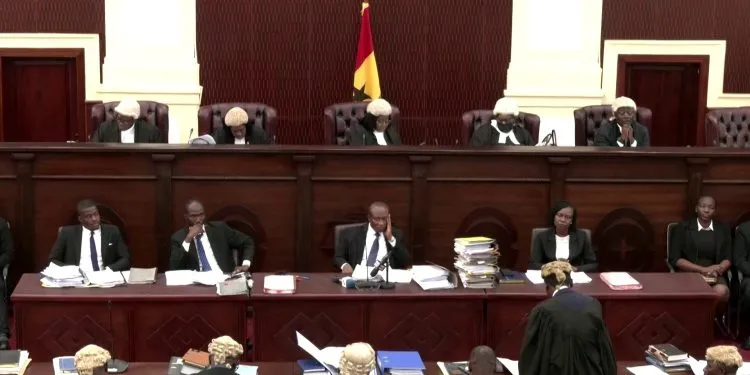The Supreme Court has ruled against Speaker of Parliament Alban Bagbin’s decision to declare four parliamentary seats vacant, siding with a challenge presented by Majority Leader Alexander Afenyo-Markin.
In a decision issued on Tuesday, the seven-member panel, led by Chief Justice Gertrude Torkornoo, reached a 5-2 majority in favor of Afenyo-Markin.
Chief Justice Torkornoo noted that a comprehensive explanation of the ruling will be provided later.
The controversy stems from Speaker Bagbin’s interpretation of Article 97(1)(g) of the Ghanaian Constitution, which he cited as the basis for his declaration.
This action faced considerable legal and political opposition, with Afenyo-Markin contending that Bagbin had overstepped his authority by circumventing judicial review and denying the possibility of by-elections in the affected constituencies.
Previously, the Supreme Court had issued an interim injunction to prevent the enforcement of the Speaker’s ruling. In response, Bagbin submitted a counter-application, arguing that parliamentary decisions should remain outside the judiciary’s purview since they involve non-judicial matters.
Bagbin’s lawyer, Thaddeus Sory, argued that judicial interference in parliamentary matters undermines the constitutional principle of separation of powers.
However, Chief Justice Torkornoo dismissed Bagbin’s argument, affirming the court’s jurisdiction to intervene when parliamentary actions may violate constitutional norms.
She expressed concern over the risk of disenfranchising constituents who could lose their parliamentary representation without the opportunity for by-elections, especially with the upcoming general elections set for December 7.
To expedite the resolution of the case, the Chief Justice directed both parties to submit their statements of claim within seven days.
This ruling raises important questions about the balance of power between the judiciary and Parliament, underscoring the judiciary’s critical role in enforcing constitutional principles while navigating the complexities of parliamentary autonomy.


